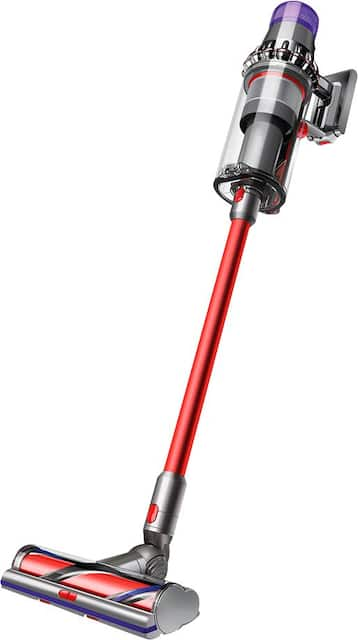Dyson V7 Motorhead Origin Lightweight Cordless Stick Vacuum Cleaner – 043-8224-8
Dyson V7 Motorhead Origin Cordless Stick Vacuum offers a cord-free, lightweight solution for all your household cleaning needs. Powerful suction ensures versatile cleaning.






by Tammy
Great product would totally recommend it. Great quality and performance of this product without fail.
by Andrea
Sa légèreté et sa simplicité rends la tâche beaucoup plus facile et agréable.
by John
Works great. Just a few negatives – you have to keep the power button depressed at all times to keep it on and working and there is a seam in the plastic that cuts into your hand exactly where it must be to keep the power button depressed! It should be moved. Otherwise great power and easy to empty.
by Vanessa
I finally bought myself a dyson after years of waiting and it is the best. My first time using it picked up sooo much dirt I was amazed, and I vacuum daily. I can vacuum my house with 1 charge, no cord so you can move quick with it. Don’t wait–just buy it
by James
Went looking at another brand but found Dyson on sale for a little bit more. This is our second Dyson and it just works. and the compactness and ease of storage is great. I would recommend Dyson in a heartbeat.
by Richard
Faute d’un autre type de balai vendu chez Canadian Tire, nous avons acheté ce modèle un peu plus dispendieux et il fonctionne très bien.